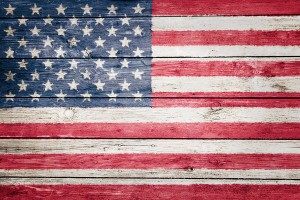The American people have always been described as being optimistic. Whether the United States economy is in high gear or it is suffering the ill effects of bubble inducements, Americans usually remain optimistic that things will get better. But that level of positivity may be dwindling, says a new poll.
According to a Wall Street Journal/NBC News survey, a majority of Americans are pessimistic of the future, and this is a concurring standpoint found across all demographics: income levels, regions, race and ages.
Here are some of the specifics: 76 percent of Americans are unsure if their children’s generation will be better than their own, 71 percent say the country is on the wrong track, 60 percent believe the nation is on the decline and 54 percent cite income inequality as hurting opportunity, a characteristic that has defined the U.S. for generations.
It should be noted that the affluent are just as sour as the impoverished and women are just as negative as their male counterparts. Experts opine that the reason for the morose outlook of the state of the U.S. is the slow economic recovery, which has still left millions out of work or in part-time employment positions.
 Another important factor that most Americans share is their lack of confidence in the political system and in their elected officials. One pollster told the Washington Post that Americans don’t think politicians can handle even the most miniscule of problems. In fact, President Barack Obama maintained a 40 percent approval rating, Congressional Democrats received a 31 percent approval rating and Congressional Republicans were given only 19 percent the thumbs up.
Another important factor that most Americans share is their lack of confidence in the political system and in their elected officials. One pollster told the Washington Post that Americans don’t think politicians can handle even the most miniscule of problems. In fact, President Barack Obama maintained a 40 percent approval rating, Congressional Democrats received a 31 percent approval rating and Congressional Republicans were given only 19 percent the thumbs up.
“The unsettledness of the public is what is normal now,” Fred Yang, a co-study author, told the newspaper. “To me, this is less about economic reality than about our political system — our lack of confidence that our political leaders, regardless of party, are equipped to deal with the future.”
Indeed, this isn’t the only poll to depict the American people in a state of disarray. Earlier this month, the Federal Reserve published the results of a study that found one-quarter of U.S. households are “just getting by.” It also discovered that one-third of Americans admitted that they were either much worse or somewhat worse off than prior to the financial collapse a few years ago.
Of course, pessimism isn’t a recent phenomenon in the U.S. Most polls show that since the late 1990s have suggested that optimism has been experiencing a precipitous decline. As the economy doesn’t reach Americans’ expectations and more voters become disenfranchised then pessimism could grow to new heights.
With the recent economic data such as the one highlighting that commodity prices may be signalling a global recession or another article reporting that foreign investors are dumping U.S. debt it may not be surprising that Americans are wary, worried and worse off than in previous years.



